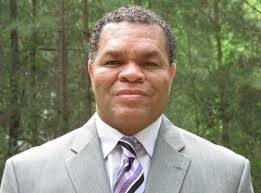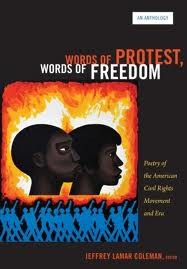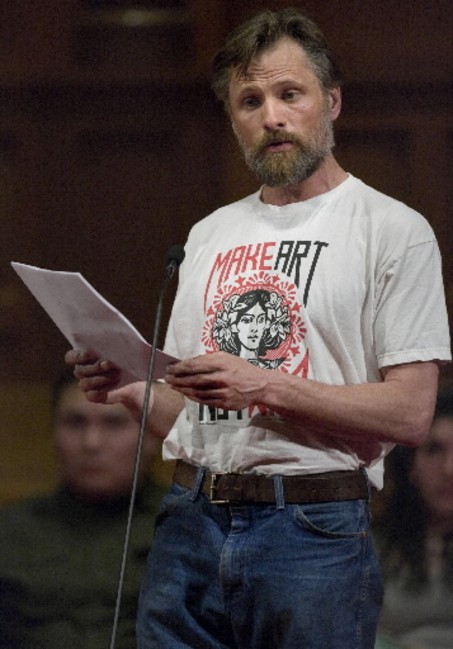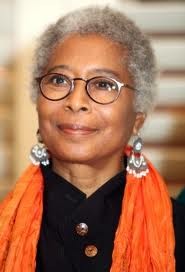
This week offered Mr. Bib a walk down Memory Lane, if perhaps other people's memories, and the opportunity to recall Claire Spark's observation that a long memory is indeed the most radical idea in American history. Or maybe even a short one. Encouraged by a comment from a reader suggesting that the thinkers I celebrated last Sunday (Paolo Freire, Richard Hofstadter, Susan Jacoby) were “hackneyed as of the 90s,” I can imagine then what he or she perhaps thinks of books by Howard Zinn. Here's a classic photograph of Howard being especially hackneyed in protest of the US war against the people of Southeast Asia. Still a pretty dangerous image, even today, forty years later, of a professor at an elite university being arrested. Oh well, one person's hackneyed is another's enduring, profound, searing, brave, provocative, heartfelt or urgent, you choose.
]

Sometimes it makes you wonder what people think is important or even real. Or, if you are me, you wonder about it pretty much all the time. It's a curse. Or a blessing. Or an opportunity. The first presidential debate, for instance. It made me think of American History, the subject and, the poem of that name, below. There, on my screen were a rich white son of privilege, a baron of the damned financial class, advocating states' rights and, yes, an African-American former poor people's activist and law professor from limited means arguing for federal responsibility and authority. You sometimes can't make this stuff up. And as it happened, I'd just read two books about why this past isn't dead, and, as Faulkner offered, why it isn't even past. One is a biography of the late activist, teacher and people's historian Howard Zinn by Martin Duberman and the other a beautiful anthology of Civil Rights Era-poetry edited by poet Jeffrey Lamar Coleman, who teaches at St. Mary's College of Maryland.
First, that poem, written in 1970 by Michael S. Harper. Here it is in, in full.
American History
Those four black girls blown up
in that Alabama church
remind me of five hundred
middle passage blacks,
in a net, under water
in Charleston harbor
so redcoats wouldn't find them.
Can't find what you can't see
can you?

This poem was new to me, and my embarrassment at not already knowing it quickly transformed into looking for more. I love the casual-seeming “remind me” and then the totally sardonic and harsh question at the end. The “four black girls blown up” are of course the victims of the Sixteenth Street Baptist Church Bombing in Birmingham on September 15, 1963. (Spike Lee made a great, great film about this by the way, called 4 Little Girls.) And there are plenty of other terrific poems in chapter five of Coleman's anthology from Duke University Press on this particular episode, including by Langston Hughes, who'd been writing against lynching and racism for a lifetime already, and Audre Lorde. The collection is organized thematically around fourteen critical moments or events, starting with the murder of Emmet Till, and covers two decades. Words of Protest, Words of Freedom: Poetry of the American Civil Rights Movement and Era offers not only an echo of these familiar episodes and their meaning, but a shout to the consciousness, especially if you, like me, didn't know all you thought you knew about the struggles, deaths, victories and defeats which some are so eager to dismiss, forget, diminish when they are not (states' rights!) trampling over the bodies. The contributors include the predictable and famous, from Auden and Ferlinghetti and Hughes to Gwendolyn Brooks and June Jordan, but also Galway Kinnell and Denise Levertov, writers perhaps not immediately associated with this struggle. Best of all, it features work by lesser-known poets or just plain
regular people who summoned the energy and strength to respond in art to what was happening: the sniper shooting of Medgar Evers, the assassinations of Kennedy, Kennedy and King, the search for Schwerner, Chaney and Goodman, and more – the awful more of a righteous struggle where a small minority of American citizens attacked the brutal status quo which the majority was fine with, resigned to, or supported, I suppose.

Hearing these voices as I read the collection reminded me of the last big project of the late author of A People's History of the United States – still probably the biggest selling history text in, well, history – a cool theatrical performance and book/CD called “Voices of a People's History” wherein Howard's friends and admirers – actors, musicians, elected officials, activists and others – read those voices in yet another revisionist retelling of the story which it is still a struggle to make heard.
Duberman, author of more than a dozen books including the go-to biography of Paul Robeson and his own groundbreaking memoir Cures: A Gay Man's Odyssey, knew Zinn, was arrested with him, was an academic peer and is himself a variety of people's historian and history maker. He has avoided writing a hagiography here, honestly assessing Zinn the writer, scholar, teacher and activist. Zinn takes some lumps, perhaps justified, for oversimplification and some sloppiness, but of course he was doing something pretty much nobody had succeeded in doing before. I thought about Orwell's line about Gandhi: “Saints should always be judged guilty until they are proved innocent, but the tests that have to be applied to them are not, of course, the same in all cases.” Harsh, but helpful. Still, this is the slightly sickening part of learning more than you or anybody needs to know about anybody else, saint or sinner, but also helps us appreciate what it takes to conduct the business of biography. What do we need, want, to know? Maybe the biographer doesn't even know. Instructive here is that those “tests” applied to Howard Zinn need, I would argue, to be indeed written just for him.
[
And as far as his activism, his life commitment to a justice agenda, there's nothing but justified awe at the energy and commitment. As a scholar, maybe not so much. Ditto his play writing, though of course that doesn't mean that Marx in Soho and his two-act play about Emma Goldman aren't great. It just means that everybody gets the treatment if they risk anything: ranked, evaluated, stood up against the lives of yourpeers, or, often stood up against a wall and shot…only to be revived and sometimes even canonized later. Life is finite, biography makes us immortal, for good or bad.

Zinn actually burned his personal papers before his death, which you might read as either a noble gesture meant to focus only on the work or as his fulfillment of a duty to protect political comrades, or perhaps him trying to prevent the kind of psychological-personality-family analysis which Duberman admits he would like to have produced – a fuller exploration of the man, whatever that means.
Funny, indeed, that a guy who changed the image of what a historian looks like, who personified the charismatic Movement Dad figure, who taught so many by way of being a jolly person and became a personality really liked to stay mum about his “personal” life. That Zinn had become an (unlikely) celebrity, which in some sense he clearly enjoyed and used for good, and yet tried to simultaneously to control it seems pretty reasonable. Anybody would like to have that power, and on the whole, Duberman's bio kinda suggests that Zinn won. He became a little Left cottage industry, wrote a terrific memoir, You Can't Be Neutral on a Moving Train, made recordings, saw his work performed, was welcomed by standing-room only audiences (I saw him most recently at a full house at Chapman University, of all places), and got his history book into high school and college classes so that when I ask my own UCI undergrads what single book they remember from Political Science or History class, it's his.
Especially strong in the biography are sections where Duberman explains the internal struggles of the national historians' organization, schools and campaigns in which Zinn participated. He acknowledges Zinn's purposeful failure to cooperate, or to even challenge those authorities in each. No kidding. He insisted on non-cooperation, on critical dissent, on justice while of course giving his all. Weirdly, HZ seems to have been rewarded for it. He was beloved by the people he struggled with and, importantly, unloved by people whose affection or esteem you wouldn't desire.

Because it has been that kind of serendipitous week, I won't be shy about going back to Coleman's excellent and moving Civil Rights poetry anthology. It's pretty easy to find Howard Zinn in there. One of his most famous former students, Alice Walker, who studied with him when he taught at Spelman College, has a poem, and for me it suggests at least one of the answers to the questions on the test Orwell mentioned. The final stanzas of Be Nobody's Darling:
Be an outcast;
Be pleased to walk along
(Uncool)
Or line the crowded
River beds
With other impetuous
Fools.
Make a merry gathering
On the bank
Where thousands perished
For brave hurt words
They said.
Be nobody's darling;
Be an outcast.
Qualified to live
Among your dead.
Rest in peace, Howard Zinn.
Words of Protest, Words of Freedom, Jeffrey Lamar Coleman, Duke University Press, 358 pps., $24.95
Howard Zinn: A Life on the Left, Martin Duberman, The New Press, 364 pps., $26.95
Andrew Tonkovich hosts the Wednesday night literary arts program Bibliocracy Radio on KPFK 90.7 FM in Southern California.

